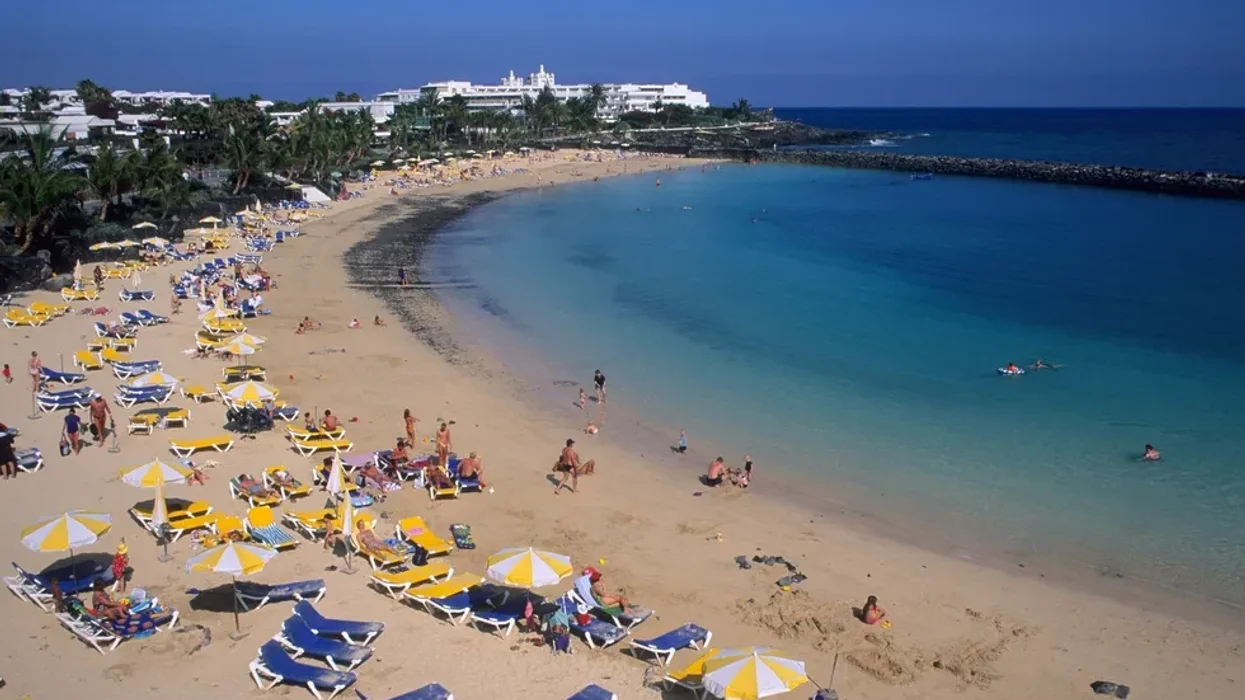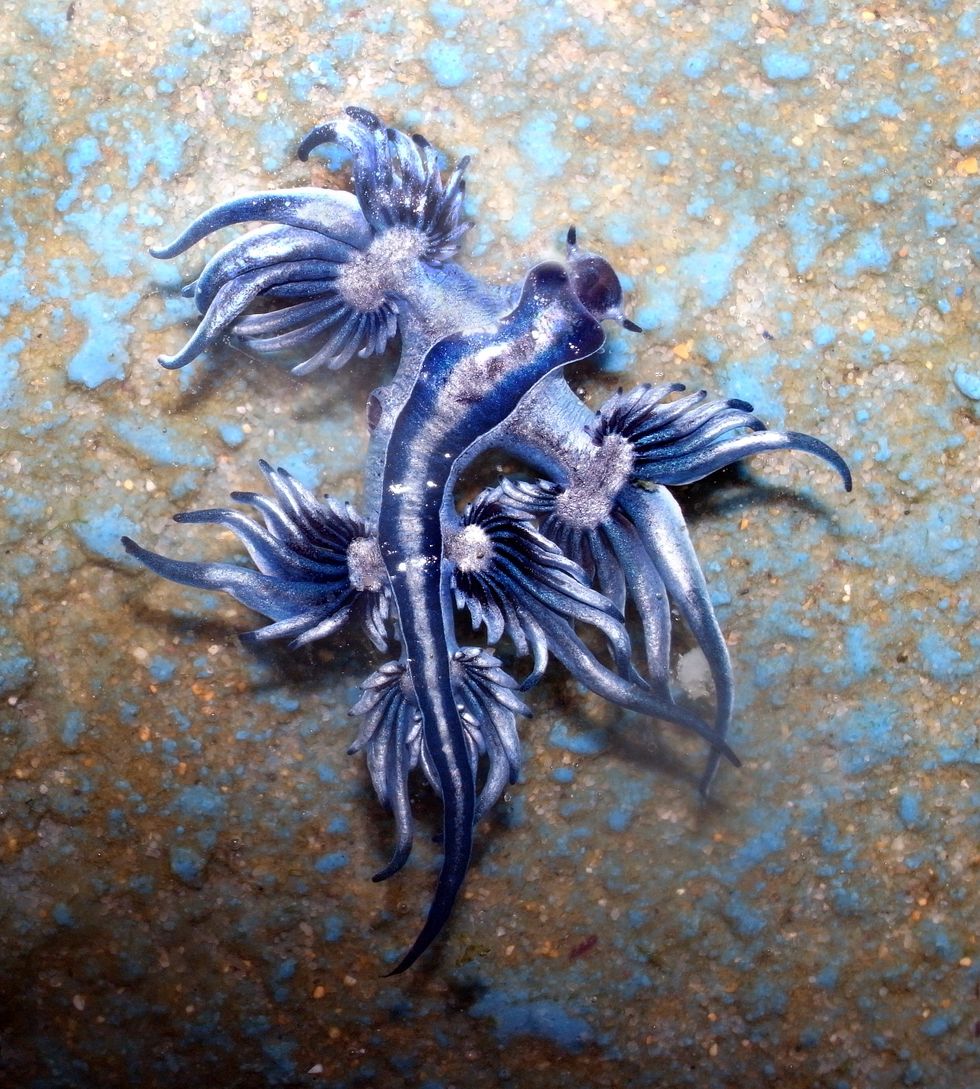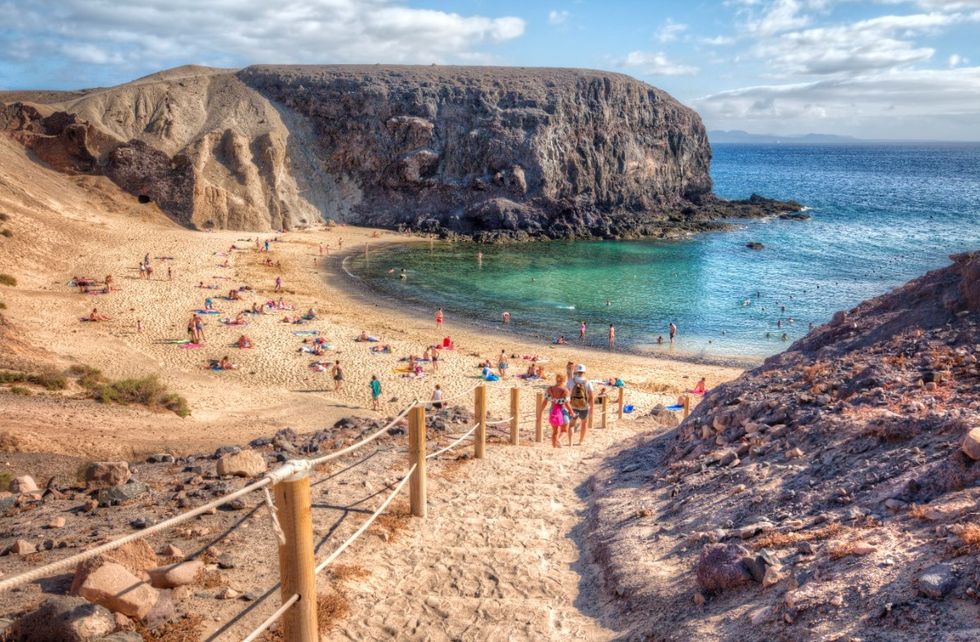Another stretch of Spanish coast closed after invasion of venomous sea creatures with fatal sting

Tourists have been warned of the deadly animal
|GETTY
The deadly creature has been called 'the most beautiful killer in the ocean'
Don't Miss
Most Read
Trending on GB News
Another stretch of Spanish coastline has been forced to close after an invasion of potentially deadly sea creatures.
A warning for Blue Dragon sea slugs, also known as Glaucus Atlanticus, was first announced last week over an 11-kilometre stretch of beach in Guardamar del Segura, Spain.
But thousands of the molluscs, whose sting can cause nausea, vomiting and intense pain, have now spread to Lanzarote, having been spotted on La Cantería beach in Órzola.
**ARE YOU READING THIS ON OUR APP? DOWNLOAD NOW FOR THE BEST GB NEWS EXPERIENCE**
As a result, the beach on the north coast of the island has been temporarily closed.
The deadly creature has been called "the most beautiful killer in the ocean".
The creature feeds on the venomous cells of creatures such as the deadly Portuguese man o' war.
It then stores the venom inside its body in concentrated doses.
LATEST DEVELOPMENTS:
- Anti-tourist locals fume as British owned cruise ship carrying over 6,000 passengers docks in Spanish city
- All it took was a six-day trip to Spain to confirm my very worst fears about Britain - Renee Hoenderkamp
- Popular Spanish town bans Muslim festivals in public spaces - 'Spain will forever be Christian!'

Tourists have been told to report any sightings of the Glaucus atlanticus
|WIKIMEDIACOMMONS
It can recycle the venom, which can help paralyse its prey 300 times its own size.
While most of the stings do not tend to be deadly, they could be fatal to children, people with heart conditions or severe allergies and if someone is stung multiple times.
The town council of Guardamar del Segura urged "extreme caution" and told beachgoers to avoid touching the animals and to call the police or lifeguard if they see one.
They said: "If this animal bites you, it is advisable to pour salt water on the area, apply a cold cloth, and go to the beach lifeguard centre."

Some seven miles of Lanzarote beach is currently closed
| GETTYThe mayor of the town, Jose Luis Saez, confirmed the sea ban order.
In a post on X, he wrote: "Red flags are on the beaches of Guardamar. Bathing is prohibited following the appearance on Vivers Beach of two specimens of Glaucus atlanticus, known as the Blue Dragon.
"We remind people that despite its bright and striking colour and its small 1.5-inch size, they should stay away from this animal because of its sting.
"Guardamar del Segura Town Hall has launched a preventive operation to detect possible specimens carried by ocean currents.
"Town hall workers are closely following the evolution of the situation and will inform people about the different measures to be taken."
Authorities warn that if the public spot any of the molluscs they should notify lifeguards or emergency services on 112 (the emergency number in Spain and the Canary Islands).
Tourists should not to touch these creatures under any circumstances, whether in the water or stranded on the shore.
If stung, those affected should carefully remove tentacle fragments with a stick or gloves before rinsing the affected area with seawater, as fresh water, vinegar, or alcohol, can worsen the sting.
They should then apply a cold pack to reduce pain and swelling and seek medical attention immediately.
More From GB News










